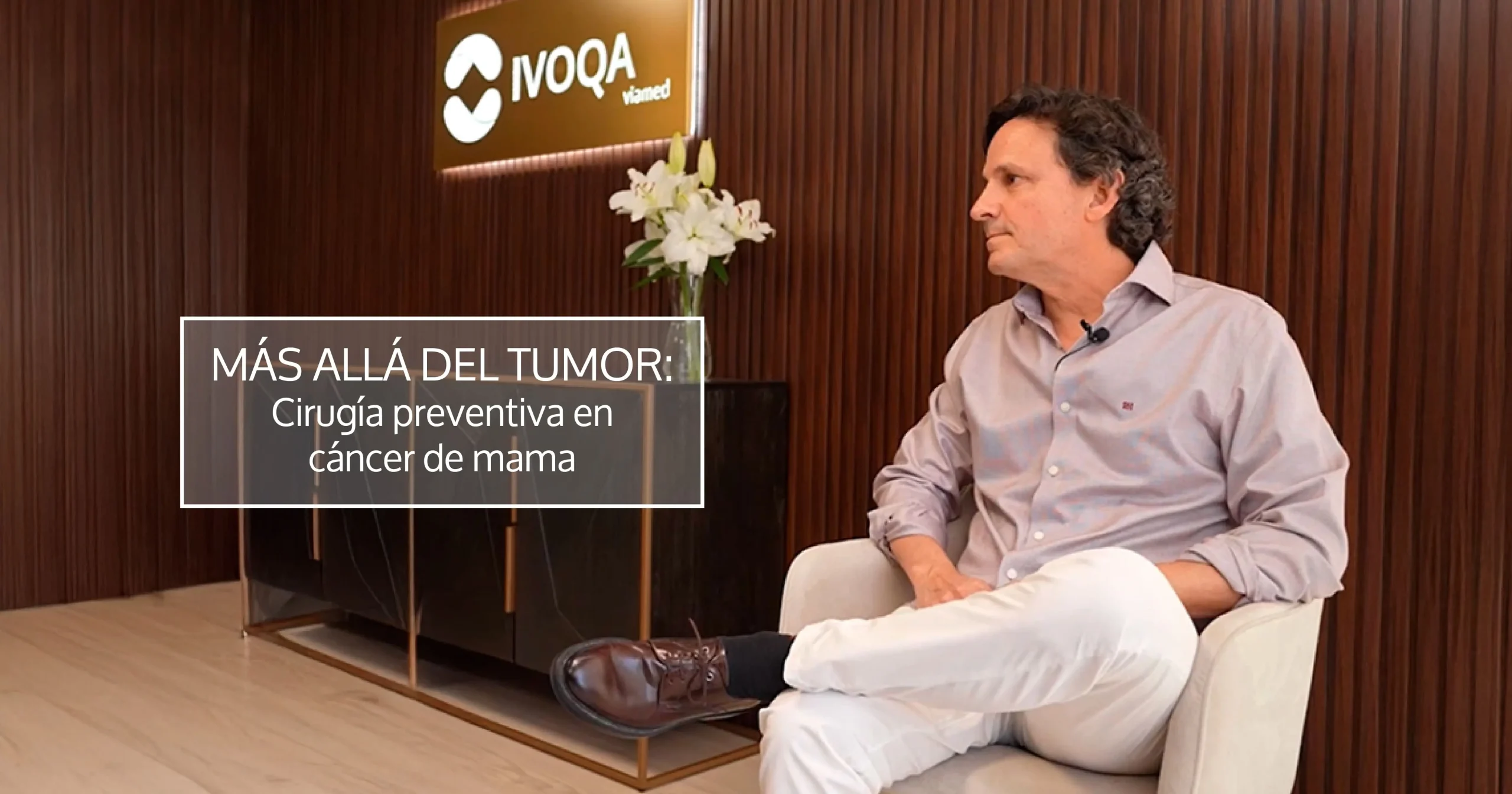As part of the series Beyond the Tumor: Addressing Questions on Ovarian and Breast Cancer, organized by IVOQA and AMOH Association, Dr. Javier Heras, gynecologist at the IVOQA Breast Unit, reflects on how to support patients with a genetic predisposition to breast cancer when making surgical decisions, especially when risk-reducing surgery is being considered. This approach is part of the multidisciplinary strategy in specialized breast units, where cancer prevention plays a key role.
What happens when a patient learns about her genetic risk?
Many women diagnosed with a genetic mutation (such as BRCA1 or BRCA2) or with significant family history come to consultation with a decision already made: “I want a mastectomy.” Dr. Heras explains that this impulse, although understandable, is often influenced by fear, external pressure, or incomplete information. This is why proper genetic and psychological counseling is essential before making definitive surgical decisions.
Two valid options: surgery or active surveillance
IVOQA’s approach is based on personalized information and respect for patient autonomy. There are two equally valid strategies to reduce the risk of breast cancer:
- Bilateral subcutaneous mastectomy: Preventive removal of breast tissue, reducing the risk by 90–95%, although not completely eliminating it. This prophylactic surgery is indicated for women with high genetic risk and is part of secondary prevention protocols in oncology.
- Intensive follow-up: Periodic check-ups every six months with high-precision imaging tests that allow early detection of any changes. This active surveillance approach includes MRI, mammography, and ultrasound, adapted to each patient’s individual risk profile.
Both options are safe and effective. The choice should be based on each woman’s clinical, emotional, and personal context. Personalized medicine allows these strategies to be adapted to each case, balancing risk, physical impact, and emotional well-being.
Does mastectomy improve survival?
Dr. Heras highlights an important point: prophylactic mastectomy does not guarantee increased overall survival in most cases. While it reduces the risk of developing cancer, studies show that close monitoring also enables early detection of tumors, with similar cure rates. This is particularly relevant in women with no personal history of cancer, where survival benefits must be carefully assessed. Only in very specific cases (such as very young women with high-risk mutations) may there be a survival advantage.
The importance of an informed decision
The goal of the consultation is not to impose an option but to clearly explain the risks, benefits, and limitations of each alternative. Many patients reconsider their initial decision after receiving this information. Health education is key to avoiding fear-driven decisions and promoting rational, empowered choices. Dr. Heras emphasizes that the best decision is the one made by the patient—with time, support, and knowledge.
Avoiding hasty decisions
The video also warns of the risks of unnecessary interventions performed outside a specialized setting. Some patients come to consultation after multiple surgeries with no clear indication, highlighting the need for these decisions to be made within tumor boards and specialized units. Such surgeries must always be assessed in centers with expertise in breast oncology, where they are approached from a comprehensive and ethical perspective.












